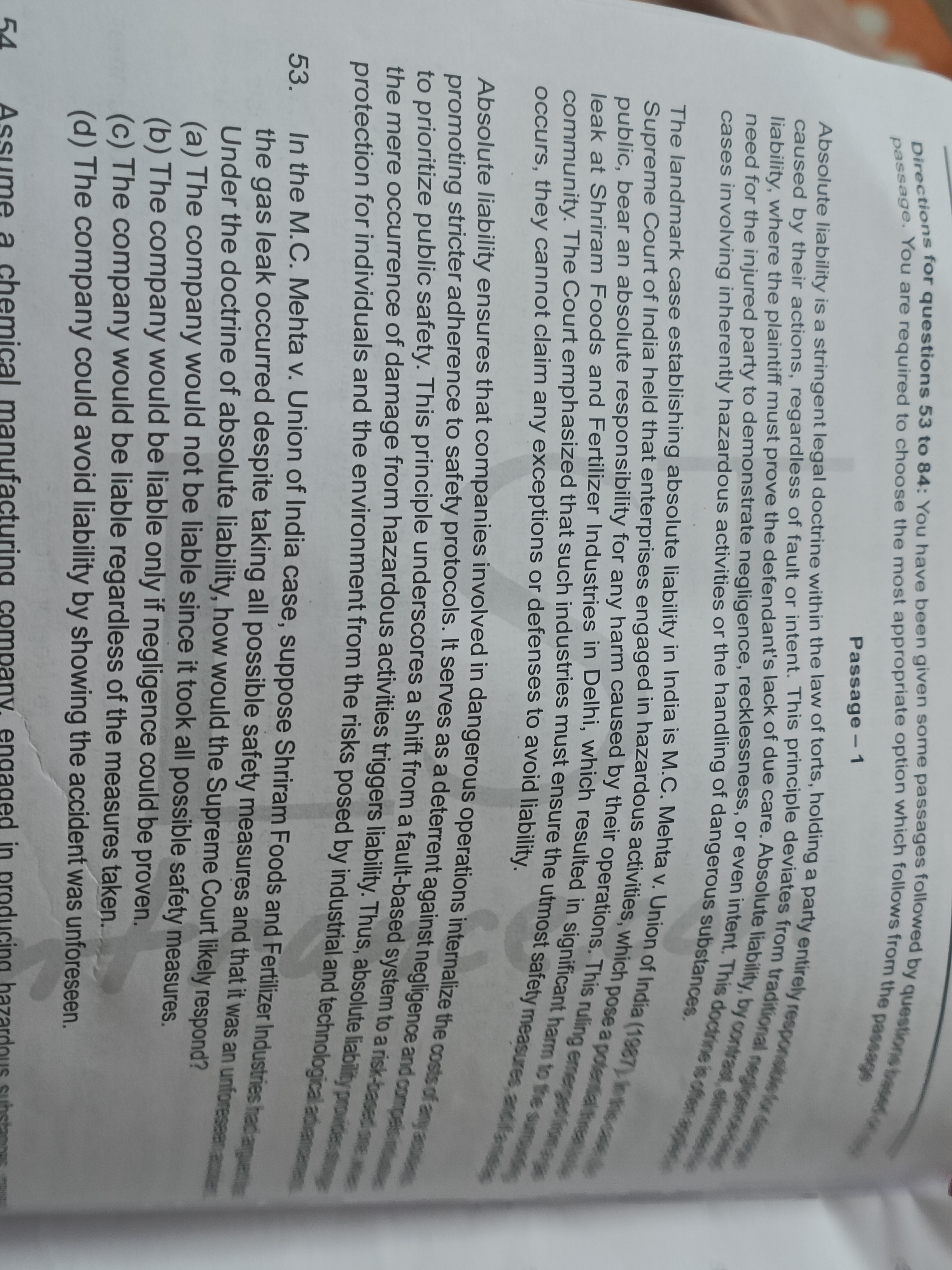In the M.C. Mehta v. Union of India case, under the doctrine of absolute liability: (a) The company would not be liable; (b) The company would be liable; (c) The company could avoi... In the M.C. Mehta v. Union of India case, under the doctrine of absolute liability: (a) The company would not be liable; (b) The company would be liable; (c) The company could avoid liability; (d) The company could avoid liability by showing the accident was unforeseen.

Understand the Problem
The question is asking about the implications of absolute liability as established in a specific legal case, M.C. Mehta v. Union of India, and how it relates to safety measures. It explores the company's responsibility and the conditions under which they might be liable or avoid liability.
Answer
The company would be liable.
The company would be liable.
Answer for screen readers
The company would be liable.
More Information
Under the doctrine of absolute liability, a company engaged in hazardous activities is liable for any harm caused without exceptions. This ensures strict adherence to safety protocols and holds companies accountable for negligent practices.
Tips
A common mistake is confusing 'absolute liability' with 'strict liability.' Absolute liability offers no defenses, whereas strict liability has some exceptions.
Sources
- Absolute liability under Tort law - iPleaders - blog.ipleaders.in
- What is Doctrine of Absolute Liability in Indian Tort Law? - LegalFly - legalfly.in
- The Doctrine of Absolute Liability - Law Essentials - lawessential.com
AI-generated content may contain errors. Please verify critical information